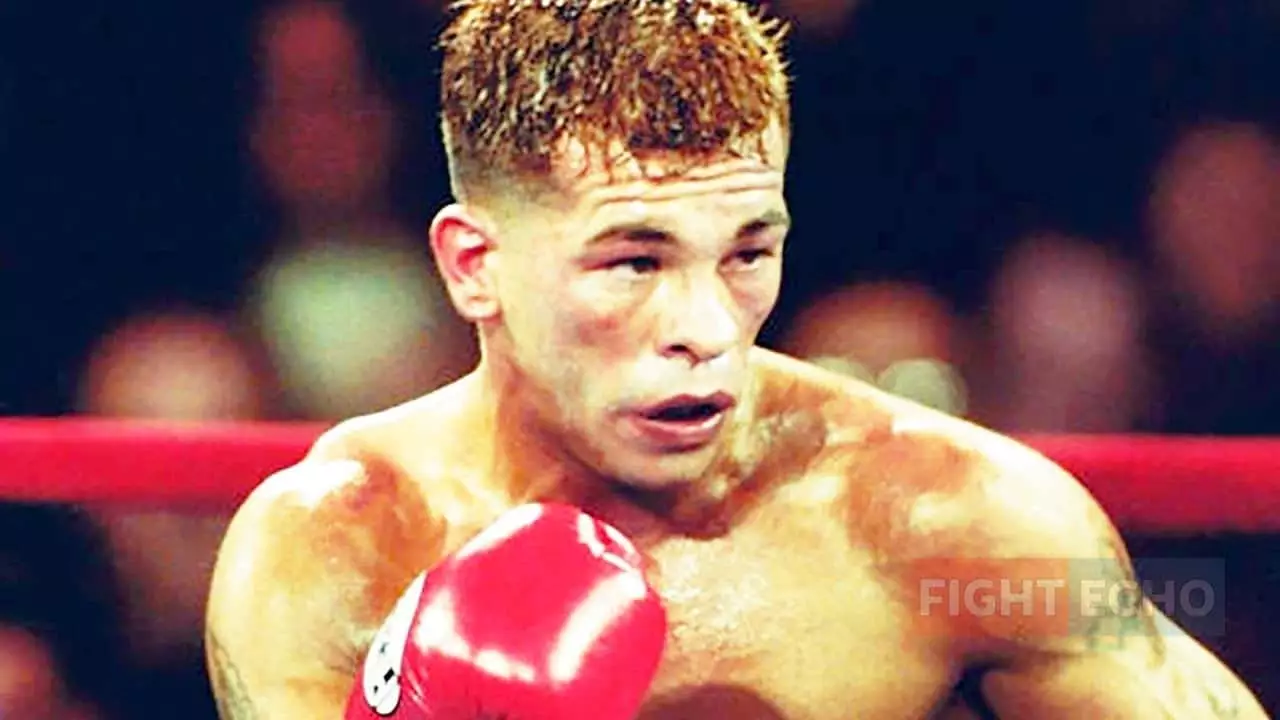In the realm of boxing, few matchups resonate as strongly as that of Floyd Mayweather and Arturo Gatti. This encounter, held at Atlantic City’s Boardwalk Hall, was not merely a confrontation; it was an exhibition that displayed the stark contrast between two esteemed fighters—one hailed for unyielding tenacity and charisma, the other revered for his scientifically calculated precision and undeniable skill. On that fateful night, it became painfully clear that what many anticipated would be a legendary bout unfolded into a masterclass in boxing—one that would leave Gatti’s fans devastated and fans of the sport in awe of Mayweather’s capabilities.
Before the fight, themes of “Thunder & Lightning” permeated the air; Gatti, the warrior known for incredible heart and grit, embodied the thunder whose boisterous roar thrilled crowds. Mayweather, the slick technician, had established himself as “Pretty Boy,” a moniker that hinted at his flashy style and prowess. As the fight commenced, the audience quickly grasped how misplaced their expectations might have been. Gatti’s reputation as an ironman in the ring, forged by legendary bouts against notable opponents like Mickey Ward, offered fans a glimmer of hope. Yet, as Mayweather danced around him, unleashing tormenting hooks and precise jabs, it became evident that Gatti’s reputation wouldn’t withstand the inevitable storm.
The Illusion of Greatness vs. the Reality of Skill
While fans and commentators alike had heralded Gatti’s ability to turn adversity into victory, that night, the romanticized notion of the “never-say-die” fighter was brutally challenged. Mayweather’s precision was a testament not only to his technical superiority but also to his psychological warfare. With each punch landed, Gatti was further ensnared in a web of frustration and defeat. His reliance on heart over strategy led him to drop his guard at critical moments—a costly miscalculation that Mayweather exploited with ruthless effectiveness. The very essence of Gatti’s persona was stripped away as he was reduced to a mere punching bag for Mayweather’s lethal arsenal.
It was during these early rounds that the distinction between a world-class boxer and a fighter who relishes in brawls was starkly illuminated. Mayweather’s speed and accuracy were destructive, showcasing a tactical approach that left Gatti reeling. Mayweather landed 168 punches to Gatti’s mere 41 throughout the contest—figures that tell a story of dominance, skill acquisition, and a calculated execution of a game plan that left no room for Gatti’s spirited resilience.
The Emotional Toll on a Devoted Following
As the fight progressed, it became clear that Gatti’s legion of supporters were witnessing not a heroic triumph but a tragic performance—one that felt like a betrayal of the very essence that endeared Gatti to them. For a fighter celebrated for his warrior spirit, the reality of being outclassed in such a monumental fashion was heart-wrenching. Gatti’s fans were faced with the uncomfortable truth that their idol had been rendered ineffectual against an opponent who stood on a different plane of boxing ability. The drama of the sport hinged on moments like these, where hearts yearn for triumph but reality delivers something harsher.
When Buddy McGirt made the decision to stop the fight to protect Gatti, it was not only a safeguard for his fighter’s well-being but an acknowledgment that the night belonged to Mayweather. In the aftermath, Mayweather’s quip about apologizing for calling Gatti a “club fighter” underscored the shifts happening in the boxing landscape—where technical prowess won over raw passion. On that night in June, 25 years ago, the thunder had crashed, but it was the lightning that truly left its mark.
Mayweather, now an established name in the pantheon of boxing greats, showcased the widening gulf between what it meant to be a champion and what it meant to survive in the ring. His evolution from a hopeful star to a pay-per-view sensation was catalyzed that night, as Gatti’s valiant efforts could do little to stem the tide of the inevitable. What transpired was not just a victory for Mayweather, but a lesson in the relentless nature of competitive sports, where emotional investment and sheer talent are often at odds.

